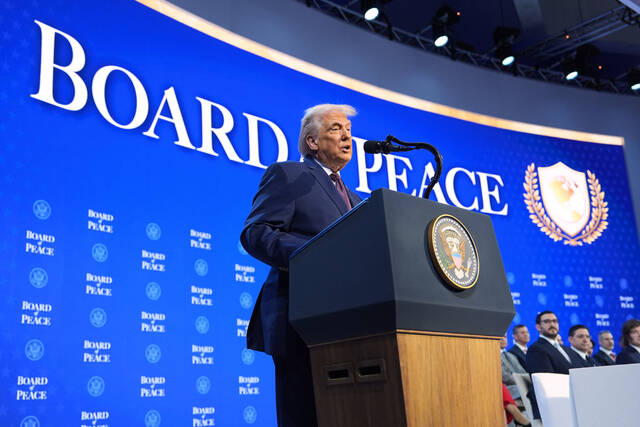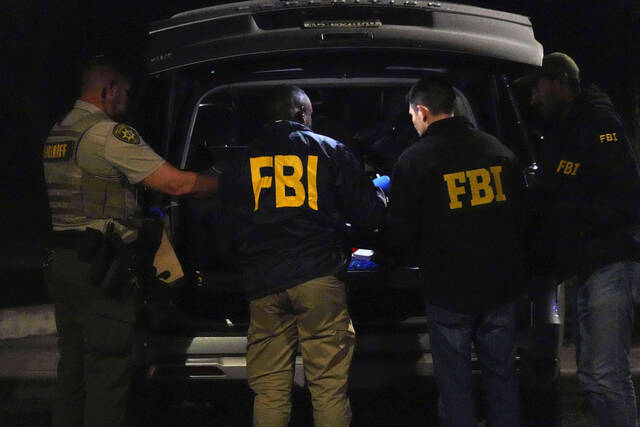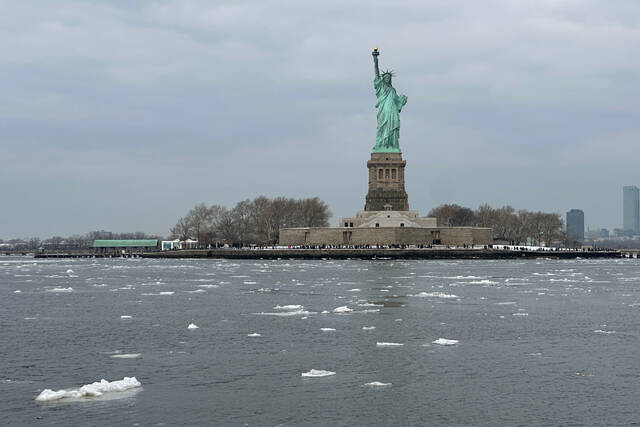Two Pittsburghers — one a Jew who lived for a decade in Israel, the other an Iranian-American with family in Tehran — offered starkly differing views Friday about Israel’s preemptive attacks on Iran less than 24 hours earlier.
“This isn’t Israel attacking and beginning another war, this is a war Iran has been fighting for years,” said Brian Eglash, the Jewish Federation of Greater Pittsburgh’s chief development officer, who is in his 50s and lived in Israel for about 10 years before moving to Pittsburgh in 1997. “Now, we are dealing with the head of the snake … Israel is doing the work of the rest of the world.”
Sam Hosseini, 28, an Iranian-American born in the U.S. and living in Pittsburgh offered a different perspective.
“This is an attempt to drive a wedge between the people of Iran and the government of Iran,” he said. “The aim of such a move is to install a government in Iran that’s more friendly to American imperialism.”
The two Pittsburghers, however, sound more alike on a human level.
Both have spent the past day talking with their families in the Middle East — for Eglash, a brother in a Jerusalem suburb and for Hosseini, a grandfather and aunt in Tehran and other family close to Iran’s borders with Iraq and Turkmenistan.
“I’m a little rattled today,” Hosseini told TribLive. “Very upset, very angry, very worried and very anxious.”
“The moment we heard things were going on, we were on the phone immediately,” Eglash said.
Pittsburghers with ties to Israel and Iran fretted over where the attacks next would lead. So did at least one former Pittsburgher living close to what could become a front in a broader, regional war in the Middle East.
Rabbi Daniel Wasserman moved to Israel after retiring in 2022. For nearly 30 years, he led a community of Orthodox Jews at Shaare Torah Congregation in Pittsburgh’s Squirrel Hill neighborhood.
At 3 a.m. Friday — about 10 p.m. Thursday in Pittsburgh — Wasserman woke to sirens in his Modi’in home, located about 20 miles northwest of Jerusalem. Within hours, he was volunteering to man ambulances.
“Iran has said, ‘We’re going to wipe Israel off the face of the Earth,’” Wasserman said. “Well, we’re not waiting around for that.”
Israel Defense Forces attacked at least seven Iranian cities Thursday, bombing nuclear enrichment facilities and military bases. It remained unclear Friday how many were killed and injured in the attacks.
Iran response
Iran responded Friday by sending more than 100 drones into Israel. At least 20 people were injured, according to news reports. The death toll has not been reported.
“As we speak, the (Israel Defense Force) is still operating within Iran — good!,” Wasserman told TribLive Friday. “The people of Iran are good people. But the Islamic fundamentalist leaders are the garbage of the world. And someone’s got to take them out.”
On Thursday, the Council on American-Islamic Relations, the largest Muslim civil rights and advocacy organization in the U.S., “condemned Israel’s unilateral offensive strikes” in Iran.
The group also urged the Trump administration to halt the flow of weapons and military aid to Israel.
“The strikes mark a dangerous escalation in a yearlong campaign of unrestrained violence that is dragging the region—and potentially the United States—into a wider war,” CAIR National Executive Director Nihad Awad said.
On Friday, CAIR, which is based in Washington, D.C., tried to steer the conversation back to Gaza.
Hamas and others fired more than 19,000 rockets into Israel in the first nine months of fighting since Oct. 7, 2023, when terrorists launched a surprise attack on Israel, killing about 1,200 people and taking 251 hostages in the deadliest attack on Jews since the Holocaust.
Hamas still holds dozens of hostages.
The war in Gaza has since marched past its 600-day mark. The death toll of Israel’s onslaught against the terror group Hamas has surpassed 60,000, according to Gazan health officials. The government doesn’t distinguish between civilians and combatants in its tally.
“It is time for our government to join the world community in finally calling for an end to Israel’s genocide in Gaza,” CAIR said Friday in a press statement.
Local politicians react
Politicians in Pennsylvania were far from monolithic in their response to Israel’s attacks.
Gov. Josh Shapiro, appearing Friday at Oakmont Country Club during the U.S. Open golf championship there, blasted Iran as “the largest state sponsor of terror” and “a destabilizing force in the world.”
“There should be no one feeling bad for the terrorists out there, but I think there is reason to worry about a rise in tensions in the Middle East and across the globe,” said Shapiro, who is Jewish.
“The Israelis were able to dismantle (Iran’s) nuclear arsenal … and that’s probably a good day for the world,” he added. “But make no mistake, we do not want an all-out war in the Middle East. That’s not only bad for the Middle East. It’s destabilizing for the world — and something that I hope will not occur.”
In the meantime, U.S. Rep. Summer Lee, a Swissvale Democrat and vocal critic of Israel, posted Friday to X about the civilian impact of the attacks.
“Israel’s strikes on Iran risk broader regional violence. Innocent civilians will be caught in the crossfire,” Lee wrote.”We cannot allow a war criminal to drag American troops and resources into another endless war. Diplomacy is the only way forward.”
Response to the attacks was swift.
“Antisemites and extremists of varying ideologies quickly reacted” to Israel’s strikes in Iran, the Anti-Defamation League, which tracks reports of antisemitism and hate crimes throughout the nation, said Friday.
One group the league dubbed “a transnational, extreme anti-Zionist group” released a statement calling “the bombing of children, the assassination of leaders (and) the attempted destruction of nations” a form of Zionist imperialism.
Another called the attacks “a new episode in the ongoing series of Zionist crimes backed by the United States,” the league said.
Fear of more antisemitism
Some stateside are worried about more pushback against Jews in the U.S.
The Jewish Federation of Greater Pittsburgh said Israel’s attack — and Iran’s response — could spur antisemitic incidents in the city.
Officials stressed, however, that there were no known threats Friday to the region’s Jewish community.
The federation has logged 164 antisemitic incidents in Pittsburgh in 2025, up from 151 at this time last year, officials said.
Wasserman, the Squirrel Hill rabbi now living in Israel, said backlash against American Jews is almost inevitable.
“I’m not worried about us here,” Wasserman told TribLive Friday. “I’m concerned about the Jews outside Israel — Jews in the U.S., Jews in Europe.”
“I say ‘Don’t pray for us,’” he added. “I pray for them.”








